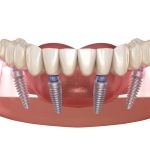
Best Essential Oils for Oral Hygiene
Oral hygiene is not only about brushing and flossing; it also includes exploring natural remedies that can improve overall oral health. Essential oils have been used for centuries as part of traditional care routines, and today, they are gaining popularity in the United States as complementary options for fresh breath, healthy gums, and bacteria control.
Why Essential Oils Work in Oral Care
Essential oils contain natural compounds with antibacterial, antifungal, and anti-inflammatory properties. These compounds help fight oral bacteria, soothe gum irritation, and promote fresh breath. Unlike some chemical-based mouthwashes, natural oils often provide a gentler yet effective way to support dental health. Many dentists recommend them as a supplemental practice, especially for people seeking holistic care options.
Top Essential Oils for Oral Health
1. Tea Tree Oil
Tea tree oil is one of the most researched essential oils for oral health. Known for its powerful antibacterial and antifungal effects, tea tree oil can help reduce plaque buildup and fight gum infections. In one real-world example, a dental patient struggling with mild gingivitis reported significant improvement after incorporating a diluted tea tree rinse into their daily care, alongside regular brushing and professional cleanings.
2. Peppermint Oil
Fresh breath is often associated with peppermint, and for good reason. Peppermint oil not only masks bad odors but also contains menthol, which has natural antibacterial properties. People who struggle with halitosis often find relief by adding a drop of peppermint oil to their homemade mouth rinse. It leaves the mouth refreshed and supports long-term odor control.
3. Clove Oil
Clove oil has a long history in dentistry, particularly for relieving toothaches. Its active compound, eugenol, acts as a natural anesthetic and antibacterial agent. Beyond pain relief, clove oil helps combat oral bacteria that contribute to cavities and gum disease. Generations of families recall how grandparents used clove oil to soothe toothaches before modern dental care became widely available.
4. Cinnamon Oil
Cinnamon oil is less common but equally effective. It contains cinnamaldehyde, a compound that targets harmful oral bacteria. Studies suggest that cinnamon oil mouth rinses may reduce plaque formation. For people who enjoy a warm, spicy flavor, cinnamon oil offers a unique alternative to peppermint or spearmint oils.
5. Eucalyptus Oil
Eucalyptus oil is often included in natural mouthwashes because of its refreshing taste and antimicrobial effects. It works by reducing bacteria linked to bad breath and gum infections. Parents sometimes use diluted eucalyptus solutions as part of a natural routine for teenagers struggling with oral hygiene habits, adding a touch of novelty to their dental care.
How to Use Essential Oils Safely
While essential oils are powerful, they should always be used with caution. Direct application to teeth or gums may cause irritation, so oils must be diluted in water or carrier oils before use. Common methods include:
- Adding a drop of essential oil to warm water as a mouth rinse.
- Mixing with coconut oil for oil pulling.
- Including in homemade toothpaste with baking soda.
Consulting a dental professional before adding essential oils to your oral routine ensures that these natural remedies support—rather than replace—traditional care like brushing, flossing, and professional cleanings.
Everyday Stories of Natural Oral Care
Across the United States, many families are rediscovering natural remedies for oral hygiene. One family in California reported fewer gum problems after introducing a daily peppermint and clove rinse. Another young professional in New York used tea tree oil to manage recurring bad breath before big presentations, boosting both oral health and confidence. These personal stories highlight how essential oils not only provide physical benefits but also contribute to emotional well-being.
Combining Essential Oils with Professional Dentistry
While essential oils provide excellent support for oral hygiene, they should complement—not replace—regular dental checkups. Professional dentists emphasize that natural remedies work best when combined with modern care. For those seeking expert advice tailored to their needs, Family Dentistry Online offers recommendations that merge science with natural wellness.







 Springfield Dentures and Implants4.0 (69 review)
Springfield Dentures and Implants4.0 (69 review) Dr. Denise M. Henderson, DDS5.0 (221 review)
Dr. Denise M. Henderson, DDS5.0 (221 review) Swift Creek Dental Care4.0 (32 review)
Swift Creek Dental Care4.0 (32 review) NÜVA Smile4.0 (105 review)
NÜVA Smile4.0 (105 review) Lower Azusa Dental Group2.0 (68 review)
Lower Azusa Dental Group2.0 (68 review) California Dentistry and Orthodontics4.0 (29 review)
California Dentistry and Orthodontics4.0 (29 review) The Importance of Oral Health Education During Pregnancy for a Healthy Pregnancy
The Importance of Oral Health Education During Pregnancy for a Healthy Pregnancy Best Tips for Brushing Your Teeth Properly for Healthy Gums: Essential Techniques for Oral Health
Best Tips for Brushing Your Teeth Properly for Healthy Gums: Essential Techniques for Oral Health Why Skipping Dental Checkups Can Lead to Bigger Oral Health Problems
Why Skipping Dental Checkups Can Lead to Bigger Oral Health Problems Advantages of Porcelain Dental Restorations
Advantages of Porcelain Dental Restorations How Can Diabetes Cause Tooth and Gum Problems? Preventing and Managing Oral Health Issues
How Can Diabetes Cause Tooth and Gum Problems? Preventing and Managing Oral Health Issues Healthy Habits for Promoting Good Oral Health and Hygiene: Tips for a Healthy Smile
Healthy Habits for Promoting Good Oral Health and Hygiene: Tips for a Healthy Smile